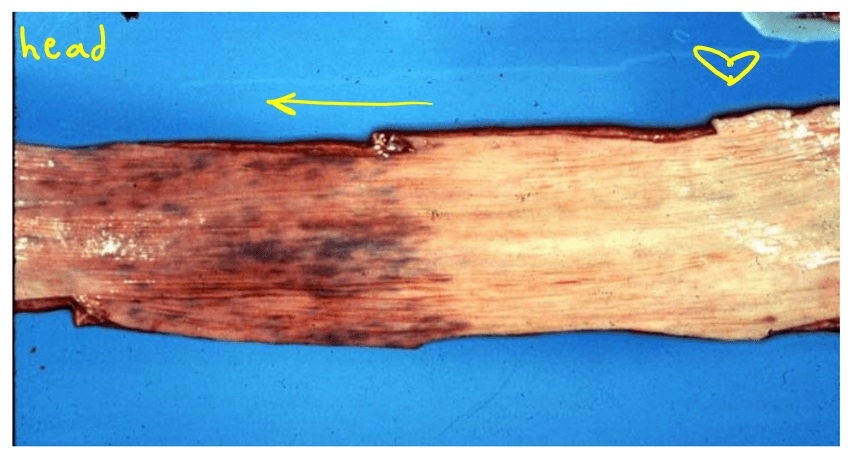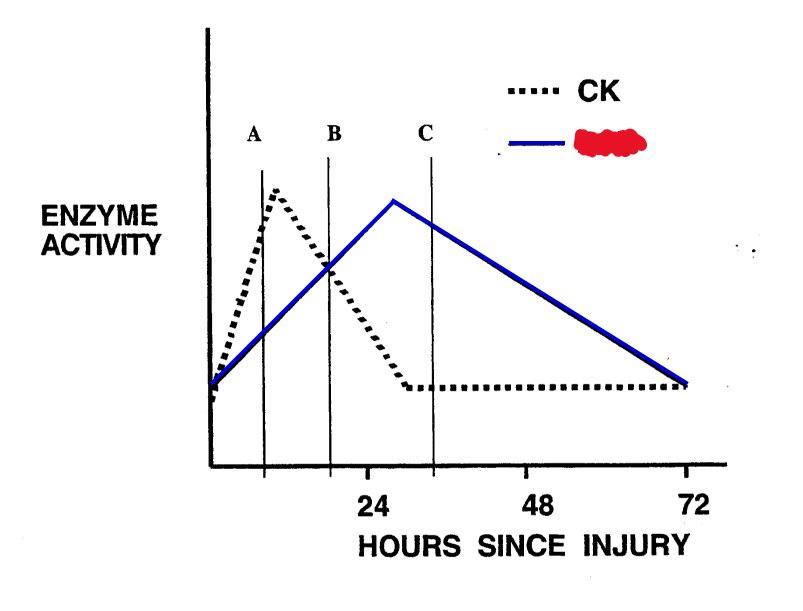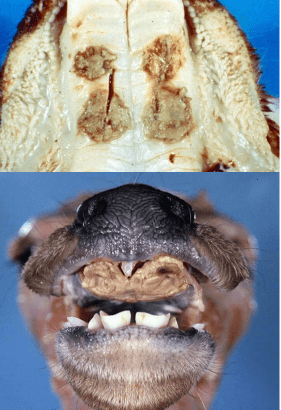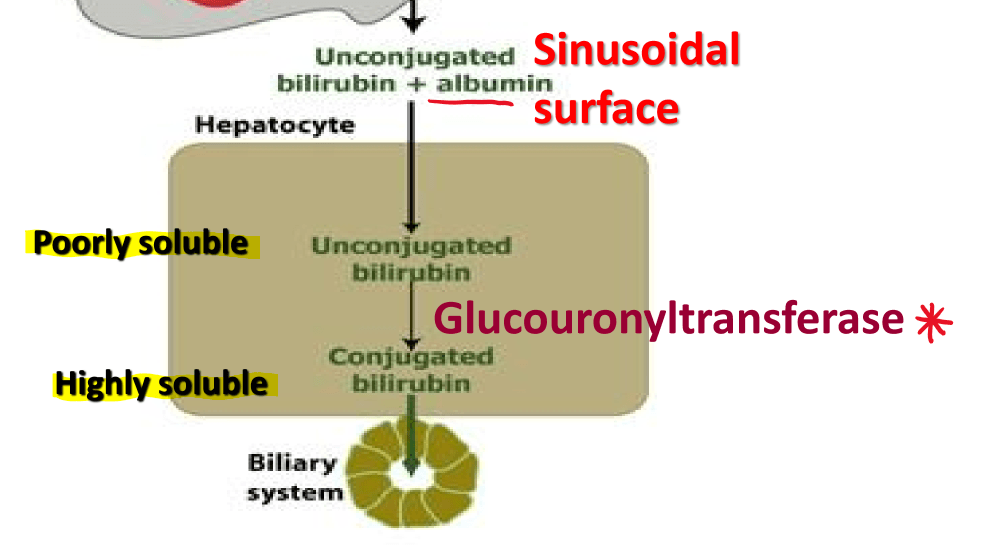The most important necropsy finding to suggest ante-mortem ulcerative esophagitis in a cow
BONUS: Describe the pathogenesis
Bloat line!
Increased intrabdominal pressure prevents the return of the blood to the heart

An enzyme whose isolated elevation can indicate either fasting and/or cholestasis
Bilirubin
This muscle-specific signaling enzyme will increase rapidly after injury but can return to normal within 24-48 hours
Creatine Kinase
The #1 differential for non-odontogenic oral neoplasia in CATS
Squamos cell carcinoma
Administration of glucocorticoids and/or anti-convulsants can result in elevated levels of this liver enzyme
Alkaline Phosphatase
The liver enzyme represented by the dark blue line in this graph can also be associated with muscle injury

Aspartate Aminotransferase (AST)
The bacterial agent responsible for the multi-focal areas of ulceration and necrosis seen in Calf Diphtheria 
Fusobacterium Necrophorum
To run this test, you'll take a 12 hour pre-fasted sample and 2 hour post-refeeding sample
Bile acids
The most common reason reason for hyperglycemia
Administration of glucocorticoids
Congenital abnormality leading to megaesophagus in a young dog
Persistent right 4th aortic arch
The most likely cause of excessive bilirubin metabolism resulting prehepatic jaundice
Hemolysis (intra or extravascular)
IMHA, oxidative injury
Curious about your animals blood glucose concentrations during the previous 2-3 weeks? Submit for this special test.
Fructosamine.
The viral agent responsible for the multi-focal, proliferative stomatitis and esophagitis seen in this cow.

Bovine parapox virus
This enzyme conjugates bilirubin into a more soluble form within hepatocytes
Glucouronyltransferase

A TLI (Trypsin-like immunoreactivity) less than 2.5 ug/L should have you suspecting this disease process.
BONUS: A TLI >5.0 ug/L would suggest...
Exocrine pancreatic insufficiency (EPI)
BONUS: Protein-losing enteropathy